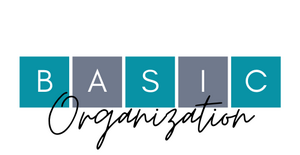The Medical Paperwork Nightmare
Paperwork is the worst! And medical paperwork is the worst of the worst!
I hear this all the time. If you separate it from all other papers and look at it objectively, IT’S NOT SO BAD.
To begin, separate any paperwork dealing with anything medical for each family member. Keep your health insurance information separate. Discard anything you no longer need.
What’s left? The bills. You will need to decide whether to itemize these on your taxes. If you do, make up a folder in which these will be stored until tax time. The paperwork is no longer needed once the bill has been paid.
For current medical bills, that may be going through the payment process, keep an active folder that you need to review often.
Paperwork is the worst! And medical paperwork is the worst of the worst! Share on X
To prepare for the future, here are a few additional steps you may wish to take. Make a list of every doctor that your family works with and keep it somewhere handy. Include name, address, and contact information. Also, make a list of all medications, prescriptions, allergies, and surgeries for each family member.
This work is so critical if you or a family member has a chronic and major illness. Getting your family’s medical paperwork in order will give you peace of mind. We can help you achieve paper nirvana! Give us a call to see how we can help.
Subscribe by email
Enter your email address to subscribe to this blog and receive notifications of new posts by email.
Janet Schiesl

Janet has been organizing since 2005. She is a Certified Professional Organizer and the owner of Basic Organization.
She loves using her background as a space planner to challenge her clients to look at their space differently. She leads the team in large projects and works one-on-one with clients to help the process move quickly and comfortably. Call her crazy, but she loves to work with paper, to purge what is not needed and to create filing systems that work for each individual client.
Janet is a Past Board Member of the National Association of Productivity and Organizing Professionals and a Past President of the Washington DC Chapter of NAPO were she has been named Organizer of the Year and Volunteer of the Year.



Janet Schiesl
Janet has been organizing since 2005. She is a Certified Professional Organizer and the owner of Basic Organization.
She loves using her background as a space planner to challenge her clients to look at their space differently. She leads the team in large projects and works one-on-one with clients to help the process move quickly and comfortably. Call her crazy, but she loves to work with paper, to purge what is not needed and to create filing systems that work for each individual client.
Janet is a Past Board Member of the National Association of Productivity and Organizing Professionals and a Past President of the Washington DC Chapter of NAPO were she has been named Organizer of the Year and Volunteer of the Year.

I find insurance paperwork (of any sort) to be a challenge. Every time they send a renewal notice or other update, I stick it in the file, and rarely take a moment to discard the older version. As a result, the file is thick and full of irrelevant documents. It doesn’t help that each mailing is 10-12 pages long either!
Janet, you’re right. Keeping up with these papers or purging the files once in a while can help.
Re-reading this three years later, I wish my only problem was too-thick files. My insurance company has gone all-digital, so they don’t send me paperwork anymore, however, no documents appear in my online account either. I’ve been bugging them for months about it. Sigh…
It seems the older I get the more doctors I have. I make a folder for each doctor and staple their business card on the tab.
Stapling the doctor’s business card is a good idea.
Great tips for getting organized. Paperwork can so easily get out of hand if you don’t have systems for organization in place – and medical files and bills are too important to misplace!
You are right and it’s what I see most often with our paper organizing jobs.
It is so important to do this, especially when you are using it for taxes. Thanks for sharing your tips.
Yes, you are right. Some medical paperwork needs to be saved for taxes and sometimes it’s hard to know what to keep.
The tax rules have dramatically changed in the last few years, which means that unless your medical expenses are really high, they probably won’t be deductible. But even so, it’s still valuable to keep medical history records of each family member. My mom is now gone, but I used to carry a list of all her medications, diagnoses, surgeries, etc… so when I talked with her doctors or if she was in the hospital, I had it as a reference. I used it a lot.
Most appreciate the nudge to get those histories in order and updated.
It is suggested that people keep medical test results and history records just for this reason. It’s gotten better over the years. Now doctor’s offices are better connected with each other to get the information.
Many of my clients struggle with having some medical paperwork in paper/tangible form, whereas other documents are now online. This whole thing is so challenging, especially for those with chronic illness who visit lots of doctors. I almost feel managing this process is an organizing subspecialty. Hmmm… maybe a conference topic?
Good idea Seana. We could always use an update lesson and some tips.
I agree – medical paperwork is a bear! My mother was in and out of the hospital during a two-year period. I found a wonderful person to handle all the paperwork for us. She was a godsend. Having help with this brought us such peace of mind.
There are experts on this topic. If you need help, usually a doctor’s office has someone who can help or answer questions, but they won’t manage everything for you.
This is a good idea with lists. Such lists can be arranged even in the phone, it is quite convenient, you do not need to look for what you need for a long time, unlike what it would be on paper.
Yes. I keep several lists on my phone too. Very convenient when you are out.